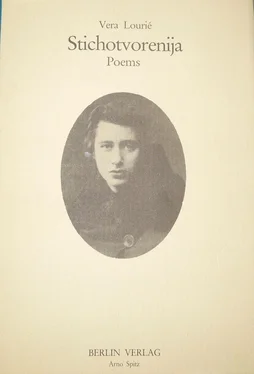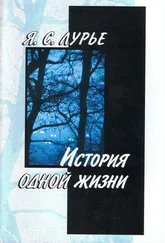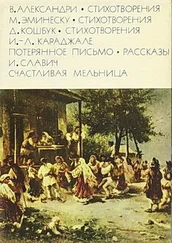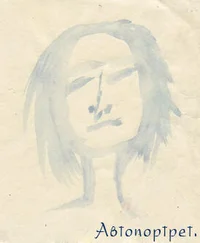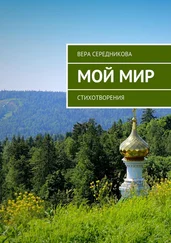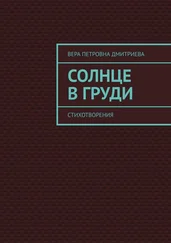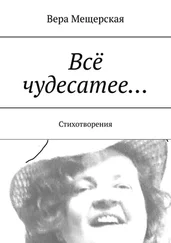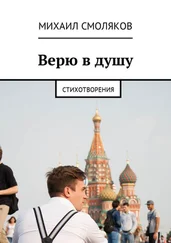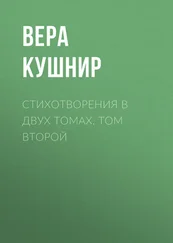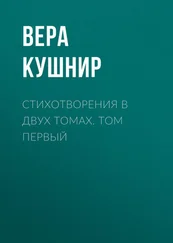The close association with Belyj and the arrival of her close friend Nina Berberova in July 1922 with Vladislav Xodasevic coin— j cided with a flurry of literary activity and the publishing career of Vera Lourie. She wrote many reviews for the important bibliographical journal, Novaja Russkaja Kniga (New Russian Book). She was also a regular contributor to two of the major Russian language daily newspapers in Berlin, Golos Rossii (The Voice of Russia) and its successor, Dni (Days). Throughout 1922 and 1923 Vera published over j twenty poems and more than forty reviews and articles.
Almost as quickly as they had begun, Vera’s literary opportunities and aspirations apparently ended. The Russian literary community abandoned Berlin in the fall of 1923. The economic crisis of that year heralded for most a return to conditions similar to those Russia after the Revolution and during the Civil War. The publishing industry, one of the major drawing cards for the literary elite, collapsed and most of the writers, many friends of Vera, scattered to Prague or Paris, while others returned to Soviet Russia. While they were free to Vera, still a young girl, remained behind with her family in Berlin The glamor, excitement and the glory of her former Petersburg and Berlin days were replaced with more earthly concerns.
Vera offered private lessons in Russian and French, but by 1924 her writing came to a halt. “I don’t write poetry, the poems write themselves.” For ten years the inspiration and the urge to write poetry were simply not there. There were a number of occasions, however, which proved that the poetic gift had not disappeared, but had simply been dormant. Two poems appeared in the collection Nevod by a group of Russian poets in Berlin in 1933. Between 1935 and 1941 Vera wrote a handful of poems to her new love, A.V. Poznjakov. Once again tragedy struck, and fate separated Vera from her love and source of her inspiration. Poznjakov was arrested and sent to Dachau where he would became one more victim of Hitler’s Germany.
Vera’s mother was also arrested and incarcerated in a camp during the war, but lived to return to her daughter. Vera, herself, was in the hands of the Gestapo for two months in 1938. Her arrest, detention and miraculous release on Christmas eve were all recounted in her article “My Acquaintance with the Gestapo” printed in the Russian language emigre paper Russkaja Mysl' (La Pensee Russe). In 1956 and 1957 Vera published several articles and poems in the newspaper. She also wrote three new poems devoted to Berlin, but when her mother died Vera set her pen aside again.
In 1983 the words began to flow again. As always, love was the stimulus and the poetic gjft re-appeared. Vera wrote a few poems in Russian but switched to German to celebrate her new friend in a collection entitled Tagebnuch einer Seele .
The literary legacy of Vera Lourie is contained in five notebooks, where the handwriting traces the path of her life. By her own admission an “inexperienced poet” she filled her pages with the fears of the unknown, her loves and sorrows, her memories, her daily thoughts. In many ways the notebooks are more a diary than a collection of poetry, and the presentation of the poems is chronological rather than thematic. They are simple poems mostly the work of a young girl in her twenties. They are much to her teacher, Gumilev, and with few exceptions they emulate his clarity of diction and thought his rhyme schemes, meters and rhythm. The vast majority of the Russian poems were written between 1921 and 1924 when Vera was first a member of the Sounding Sea-Shell in Petrograd and then involved with the circles of Belyj and Xodasevic, Baxrах, and Osorgin in Berlin. Since 1924 she has been largely cut off from the world of Russian poetry, both in the Soviet Union and in exile. Thus her more recent Russian poems are something of a time machine returning us to the simpler days of Acmeism. The poems are not “about the symbolic, nor the cosmic,” but about one life of a young girl, separated from her homeland, confused, fearful, lonely. Someone longing for love and finding poetry as her only faithful companion. Vera, when she has returned to poetry intermittenly over the past sixty years, has done so at times of great emotion and stress, sharing in her poems and with her poetry her intimate thoughts on love lost or unrequited. It is the sad, melancholic female voice, that those who love Russian music know so well.
Vera’s first notebook dates to Petrograd in 1920–1921. In these early poems two themes emerge: death and love. The poet on sleepless nights is frightened by the unknown, by the future with its inevitability of death. The execution of Gumilev had a profound effect on the poet who tried to reject the finality promised by death.
“I’ll never see you,”
I don't believe those words!
The prospect of death frightens her “not with hell’s horrors” but by the though, that burning lips will never again brush her forehead.
The poet is frightened and her images of the Last Judgement, cemeteries and graves haunt her dreams and sleepless nights. Her refuge is the world of imagination, fantasy, fortune-telling, the world of romantic dreams and expectations. How grateful for a few brief moments when:
You caress my hands with your life,
I like to lie here and be still,
To know, there is nothing between us,
We'll be strangers tomorrow again.
How fervently she searches through her cards at midnight for a glimpse at her fortune, waiting for the words: “I love you.” Yet, reality, be it death or the more mundane cries of the merchants in the market place, intervenes and breaks the spell.
The poet cannot cry, nor can she share her thoughts with others:
And no one will know, that I,
So recently loved you.
The loss of her lover leads to despair and brings back those fears of the unknown and her loneliness.
I don’t know, what will become of me,
But it's frightening to look ahead.
But it's so frightening, that I must all alone
Traverse this entire path unknown.
In an attempt to escape these thoughts she turns to earlier memories of childhood “On the ship” or tries to lose herself among the painted beauties in the Hermitage Museum where:
I pray for my poor soul
And press my lips to the Madonna.
The religious symbolism, the churches and the bells are one refuge for her and recurring Leitmotivs in her work. She resigns herself to the loss of her loved one and decides to abandon the search for “buried treasure.” Her decision grants peace and sleep, and her resolution is firm but shortlived.
The second notebook is one of transition from Petrograd to Berlin from the fall of 1921 to the winter and end of 1922. Once again Gumilev’s death occupies a prominent place at the beginning of the book, but he is soon replaced by Vaginov, who has stolen the poet’s heart. Vera’s departure from Russia and journey to Riga and then on to Berlin give rise to another major theme of her poetry-her memories of Petrograd, the city of white, so different from the black asphalt streets and daily reality of Berlin. The holiday season of 1921 is particularly painful as she recalls earlier Christmases in Russia. The day in Germany carries none of the happiness of childhood and has almost passed unnoticed.
I probably lost my heart
In the twilight at Warsaw Station
And now I know nothing
And for everyone today is Christmas.
On New Year’s Eve she takes to her room and alone in bed she fantasizes of a lover, who is not there.
Throughout these poems there is a constancy and faithfulness this the motherland. In her poem “On Sunday” she clearly expresses this devotion motivated by the Sunday church bells which recall the sights and sounds of her beloved Petersburg.
Читать дальше
